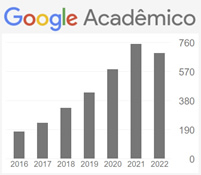Changing epistemic beliefs? An exploratory study of cognition among prospective history teacher
DOI:
https://doi.org/10.5965/2175180306112014028Resumen
This study explores changing epistemic beliefs in the history domain among 18 prospective history teachers. Drawing data from these college undergraduate history majors who were considering teaching careers, the study traces out an exploration of how epistemic beliefs may change at this crucial developmental point. A likert-scale instrument served as a primary data-gathering tool and it was administered in a pre-post, design. Observational and interview data augmented the scale data. A university-based course served as an educational vehicle designed to influence epistemic beliefs. The results among the prospective teachers were mixed. Some students’ epistemic beliefs remained unaffected by the course, while others changed, some quite dramatically. Reasons for varied influences are the subject of the discussion. Implications of the results are also considered.
Keywords: Epistemic Knowledge; Historical Thinking; History Teaching; Prospective Teachers.Descargas
Citas
BENDIXEN, L. D. A process model of epistemic belief change. In: HOFER, B. K. and
PINTRICH, P. R. (Eds.). Personal epistemology: The Psychology of beliefs about knowledge and knowing. Mahwah, NJ: Earlbaum, 2002, p. 191-209.
BRITZMAN, D. Practice makes practice. A critical study of learning to teach. New York, NY: SUNY Press, 1991.
BUEHL, M. M., & ALEXANDER, P. A. Beliefs about academic knowledge. Educational Psychological Review. v. 13, p. 385-418, 2001.
CUBAN, L. History of teaching in social studies. In: Shaver, J. P. (Ed.). Handbook of research on social studies teaching and learning. New York, NY: Macmilian, 1991, p. 197-209.
DAVIDSON, J. & LYTLE, M. After the fact: The art of historical detection. New
York, NY: McGraw Hill, 1992.
DAVIS, N. On the lame. American Historical Review. v. 93, p. 572-603, 1988.
FINLAY, R. The refashioning of Martin Guerre. American Historical Review. v. 93, p. 553-571, 1988.
HOFER, B. Personal epistemology research: Implications for learning and teaching.
Journal of Educational Psychology Review. v. 13, n.4, p. 353-383, 2001.
HOFER, B. (2002). Personal epistemology as a psychological and educational construct:
An introduction. In: Hofer, B. & Pintrich, P. (Eds.). Personal epistemology: The psychology of beliefs about knowledge and knowing. Mahwah, NJ: Erlbaum, 2002, p. 3-15.
HOFER, B., & PINTRICH, P. The development of epistemological theories: Beliefs about knowledge and knowing and their relation to learning. Review of Educational Research. v. 67. n.1, p. 88-140, 1997.
HICKS, D., DOOLITTLE, P., & LEE, J. Social studies teachers’ use of classroom-based and web-based historical primary sources. Theory and Research in Social Education. v. 32, n. 2, p. 213-247, 2004.
KENNEDY, M. (2005). Inside teaching: How classroom life undermines reform. Cambridge: Harvard University Press, 2005.
KING, P., & KITCHENER, K. The reflective judgment model: Twenty years of
research on epistemic cognition. In: Hofer, B & Pintrich, P. R. (Eds.). Personal epistemology: The psychology of beliefs about knowledge and knowing. Mahwah, NJ: Erlbaum, 2002, p. 37-61.
KLOPPENBERG, J. Objectivity and historicism: A century of American historical writing. American Historical Review. v. 94, p. 1011-1030, 1989.
KUHN, D., & WEINSTOCK, M. (2002). What is epistemological thinking and why does it matter? In: Hofer, B. K. & Pintrich, P. R. (Eds.). Personal epistemology: The psychology of beliefs about knowledge and knowing. Mahwah, NJ: Erlbaum, 2002, p. 121-145.
LAMPERT, M. (1990). When the problem is not the question and the solution is not the
answer: Mathematical knowing and teaching. American Educational Research Journal. v. 27, p. 29-63, 1990.
LEE, P. Understanding History. In: Seixas, P. (Ed.). Theorizing historical consciousness. Toronto: University of Toronto Press, 2004, p. 129-164.
LEE, P., & ASHBY, R. (2000). Progression in historical understanding among students ages 7-14. In: Sterns, P. Seixas, P. & Wineburg, S. (Eds.). Knowing, teaching, and learning history: National and international perspectives. New York: NYU Press, 2000, p. 192-222.
LEE, P., & SHEMILT, D. A scaffold, not a cage: Progression and progression models in history. Teaching History. v. 113, p. 13-24, 2003.
LORTIE, D. Schoolteacher. Chicago, IL: University of Chicago Press, 1975.
MAGGIONI, L., ALEXANDER, P., & VANSLEDRIGHT, B. At a crossroads? The development of epistemological beliefs and historical thinking. European Journal of School Psychology. v. 2, n. 1-2, p. 169-197, 2004.
MAGGIONI, L., VANSLEDRIGHT, B., & ALEXANDER, P. Walking on the borders: A measure of epistemic cognition in history. The Journal of Experimental Education. v. 77, n. 3, p. 187-213, p. 2009.
MAGGIONI, L., VANSLEDRIGHT, B., & REDDY, K. Epistemic talk in history. In: biennial conference of the European Association for Research on Learning and Instruction (EARLI). Amsterdam, Netherlands, 2009.
MCDIARMID, W., & VINTEN-JOHANSON, P. (2000). A catwalk across the great divide: Redesigning the history teaching methods course. In Stearns, P., Seixas, P., & Wineburg, S. (Eds.). Knowing, teaching, and learning history: National and international perspectives. New York: New York University Press, 2000, p. 156-177.
MEGILL, A. Historical knowledge, historical error: A contemporary guide to practice. Chicago: University of Chicago Press, 2007.
MUIS, K. R., BENDIXEN, L. D., & HAERLE, F. Domain-generality and domain-specificity in personal epistemology research: Philosophical and empirical reflections in the development of a theoretical framework. Educational Psychology Review. v. 18, p. 3-54, 2006.
NOVICK, P. That noble dream: The objectivity question and the American
historical profession. Cambridge, UK: Cambridge University Press, 1988.
PAXTON, R. J. A deafening silence: History textbooks and students who read them. Review of Educational Research. v. 69, p. 315-339, 1999.
SCHOENFIELD, A. Beyond the purely cognitive: Belief systems, social cognitions, and metacognitions as driving forces in intellectual performance. Cognitive Science. v. 7, p. 329-363, 1983.
SCOTT, J. W. After history? Common Knowledge. v. 5, p. 9-26, 1996.
STRØMSØ, H. I., & BRÅTEN, I. (2002). Norwegian law students’ use of multiple sources while reading expository texts. Reading Research Quarterly. v.37, p. 208-227, 2002.
VANSLEDRIGHT, B. What does it mean to think historically and how do you teach it? In: Parker, W. (Ed.). Social studies today: Research and practice. New York, NY: Routledge, 2010, p. 113-120.
VANSLEDRIGHT, B. (2011). The challenge of rethinking history education: On practices, theory, and policy. New York, NY: Routledge, 2011.
VANSLEDRIGHT, B. & FRANKES, L. Concept and strategic knowledge development in historical study: A comparative exploration in two fourth grade classrooms. Cognition and Instruction. v. 18, n. 2, p. 239-283, 2000.
WINEBURG, S. Historical thinking and other unnatural acts: Charting the future of teaching the past. Philadelphia, PA: Temple University Press, 2001.





